In the grand scheme of evolution, humans like to think of themselves as the pinnacle of intelligence. We’ve developed technology, built civilizations, and even ventured into space. But hold on to your hats, folks, because there’s an underwater contender that might just outsmart us in some areas: the octopus. These eight-armed wonders possess a level of cleverness that might just make you reevaluate who the true geniuses of our planet are.
1. They’re Ingenious Escape Artists
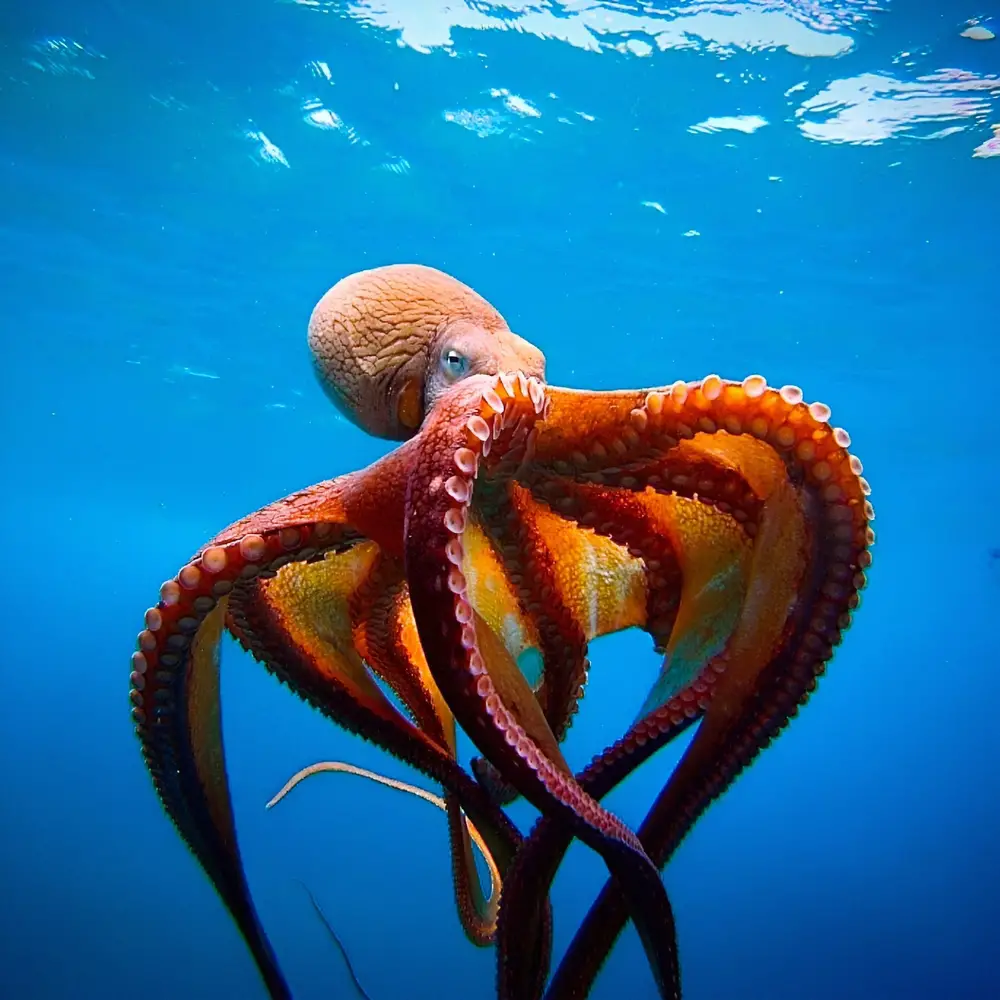
You’ve probably heard tales of octopuses breaking free from aquariums like miniature Houdinis, and it’s all true. These slippery escape artists can wiggle their way out of almost any enclosure, even if it means squeezing through a hole the size of a coin. Their ability to plan and execute such escapes showcases an impressive level of problem-solving and adaptability. It’s like they sit there contemplating, “How can I outsmart these humans today?” This kind of forward-thinking is rare in the animal kingdom and is a testament to their intelligence. According to National Geographic, Inky the octopus made a daring escape from the National Aquarium of New Zealand by slipping out of his tank, crossing the floor, and squeezing through a drainpipe leading to the ocean.
Moreover, their need to explore and understand their environment suggests a high level of curiosity, akin to that of young children. This inquisitiveness means they often engage in playful behavior, like squirting water at unsuspecting passersby or rearranging items in their tanks. Their escape antics aren’t just about survival—they’re fueled by a desire to investigate and interact with the world around them.
2. They Can Use Tools Underwater
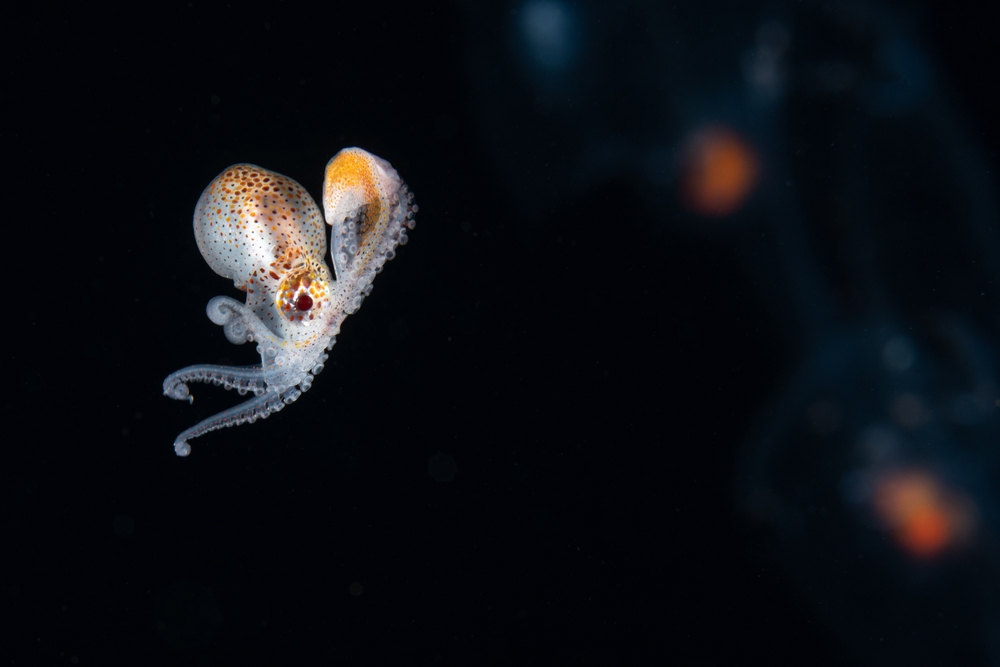
Believe it or not, octopuses are one of the few non-human animals known to use tools. They’ve been observed carrying coconut shells around the ocean floor to use as mobile shelters. This isn’t just about protection—it’s about anticipating future needs, understanding their environment, and manipulating it to their advantage. Just imagine an octopus hiding in a shell, waiting to surprise its prey or avoid a predator. It’s like a scene straight out of a marine version of “Mission Impossible.” As detailed by BBC News, the veined octopus collects coconut shells and carries them over distances to later assemble as a protective shelter.
The implications of such behavior are profound. Tool use was once thought to be a hallmark of human intelligence, yet here we have octopuses defying those expectations. This ability to use tools indicates a level of cognitive sophistication that challenges our perceptions of intelligence in the animal kingdom. So next time you’re using a gadget, remember there’s an octopus out there doing something similar, minus the electricity.
3. They’re Masters Of Disguise
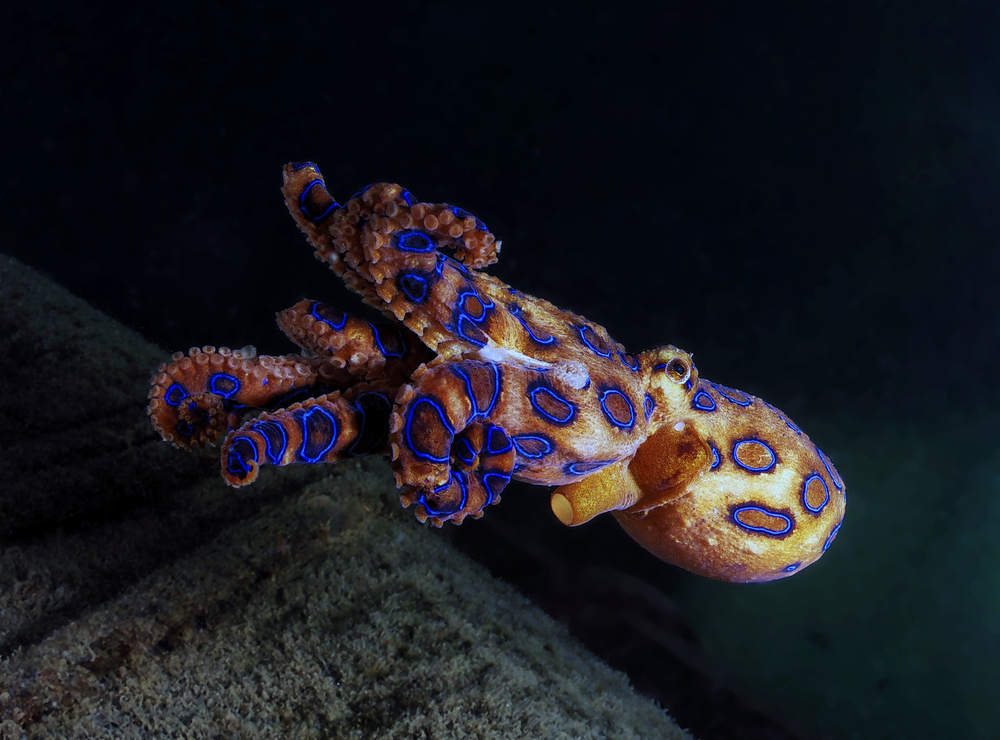
When it comes to camouflage, octopuses are the undisputed champions of the ocean. They can change the color, texture, and even the shape of their bodies to blend into their surroundings. This isn’t just a simple reflex—it’s a complex process that involves analyzing the environment and determining the best way to disappear. Their skin is equipped with specialized cells that allow them to mimic the appearance of rocks, coral, or even other animals. It’s like they’re underwater chameleons, but with even more flair.
This mastery of disguise is not just for show; it’s a survival tactic that requires intelligence and quick thinking. Whether avoiding predators or sneaking up on prey, octopuses use their skills to outwit other ocean dwellers. In a way, their ability to become invisible is akin to a magician’s sleight of hand—a mesmerizing trick that leaves others bewildered.
4. They Can Solve Complex Puzzles
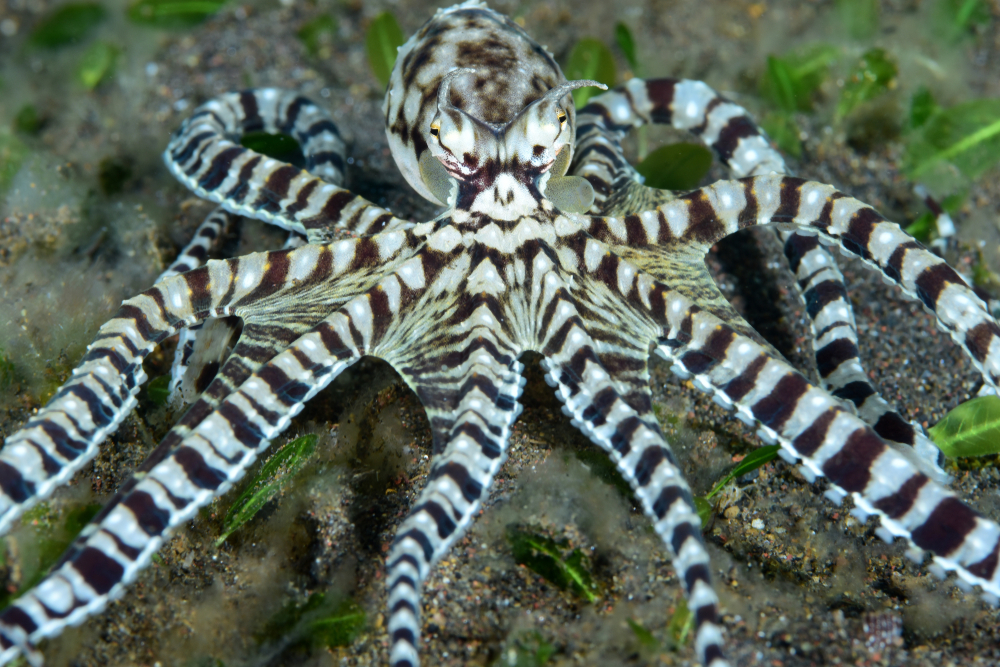
Octopuses have an uncanny knack for solving puzzles that would stump many other animals, and possibly even some humans. In captivity, they’ve been given all sorts of challenges, from opening jars to navigating mazes. What’s astonishing is how quickly they learn and adapt to these new situations, often figuring out solutions in ways researchers never anticipated. It’s like watching a live-action problem-solving demonstration, where the octopus is the star of the show.
This problem-solving prowess isn’t just about food rewards; it’s part of their natural behavior. In the wild, they encounter various obstacles that require clever solutions, from hunting prey to escaping predators. Their ability to think critically and devise strategies demonstrates an impressive level of intelligence. It also makes you wonder—if they ever get tired of the ocean, could we see octopuses acing escape rooms on land?
5. They’re Expert Communicators Of The Deep
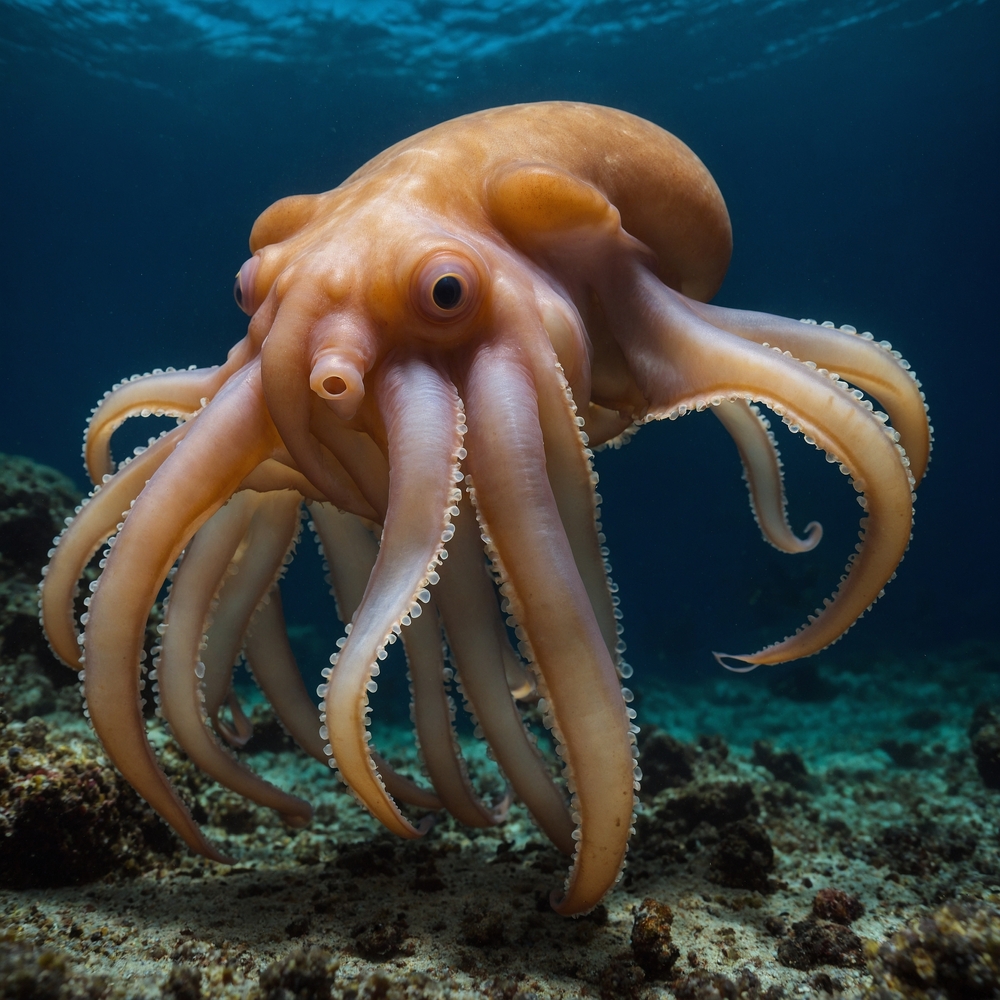
While they might not chat like dolphins or parrots, octopuses have their own unique ways of communicating. They use a complex system of color changes, body patterns, and postures to convey messages to each other. This form of visual communication is sophisticated and requires a high level of cognitive function. Imagine trying to communicate your mood or intentions without words—octopuses do this with ease.
Their communication skills aren’t limited to each other; they also interact with their environment in meaningful ways. For example, they can signal aggression or submission to potential threats or partners, showcasing their understanding of social dynamics. This ability to convey and interpret messages highlights their intelligence and adaptability. So next time you’re struggling to get your point across, think of the octopus, silently and effectively making its presence known.
6. They Have Next-Level Cognitive Skills
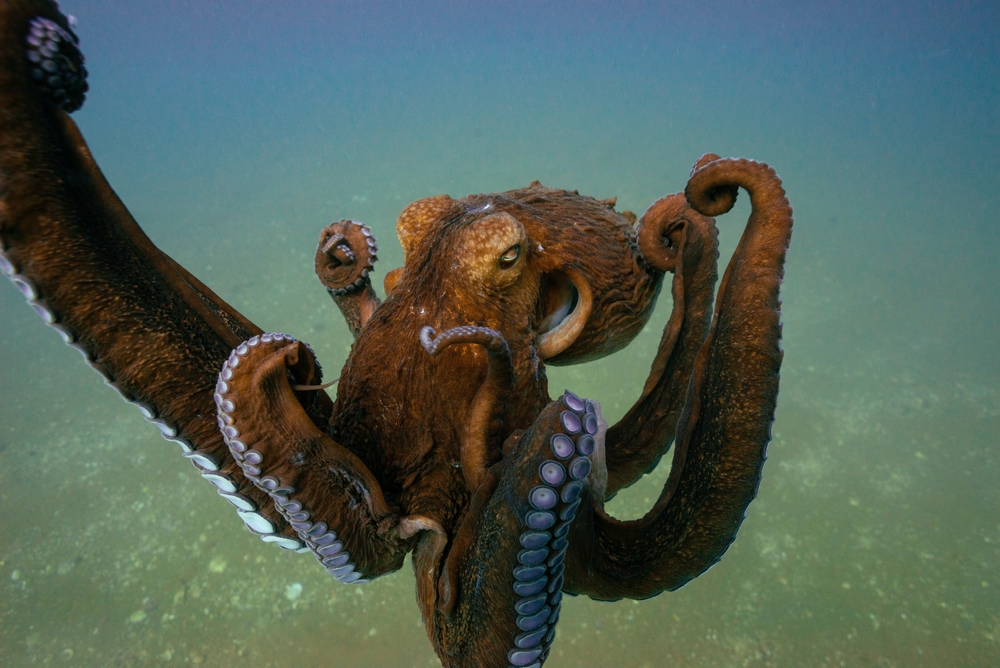
Tragically, octopuses have relatively short lifespans, often living just a few years. Despite this, they achieve an incredible amount in their brief time on Earth. Think about it: in just a couple of years, they master survival skills, learn complex behaviors, and even create offspring. This accelerated learning process is a testament to their intelligence and adaptability. It’s like watching a prodigy live a lifetime of achievements in the blink of an eye.
The fact that they can develop such advanced cognitive abilities in a short time is mind-boggling. It raises intriguing questions about the nature of intelligence and the potential of other short-lived species. If octopuses can accomplish so much with just a few years, imagine what they could do with a lifespan like ours. Perhaps they’re proof that life’s brilliance isn’t measured in years but in the richness of experience and learning.
7. They’re Smart Solo Artists
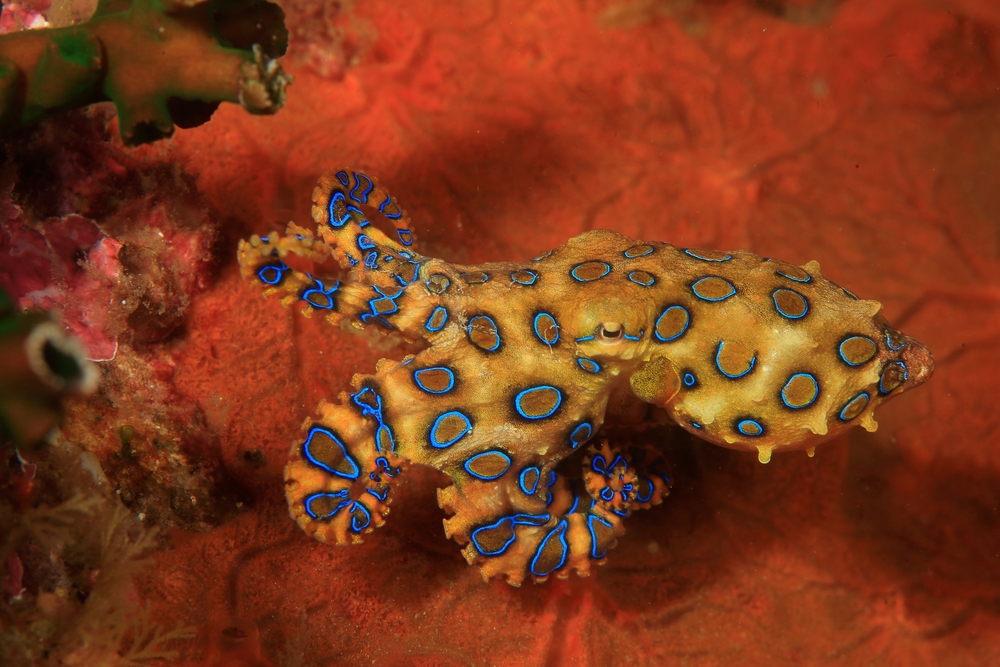
Unlike many intelligent animals, octopuses are solitary creatures. They don’t rely on social structures or pack dynamics to navigate their world; instead, they’ve honed their individual skills to survive. This independence is a remarkable facet of their intelligence, as it necessitates a high level of self-reliance and adaptability. In a way, they’re like the lone wolves of the sea, charting their own paths through the depths.
Their solitary nature means they must be versatile and resourceful, handling everything from hunting to habitat creation on their own. It’s a stark contrast to many other intelligent species, which often depend on group interactions for learning and growth. The octopus’s ability to thrive independently speaks to a unique form of intelligence—one that embraces self-sufficiency and creative problem-solving. So the next time you pride yourself on doing something on your own, remember the octopus, thriving solo in the vast ocean.
8. They’re Environmental Architects
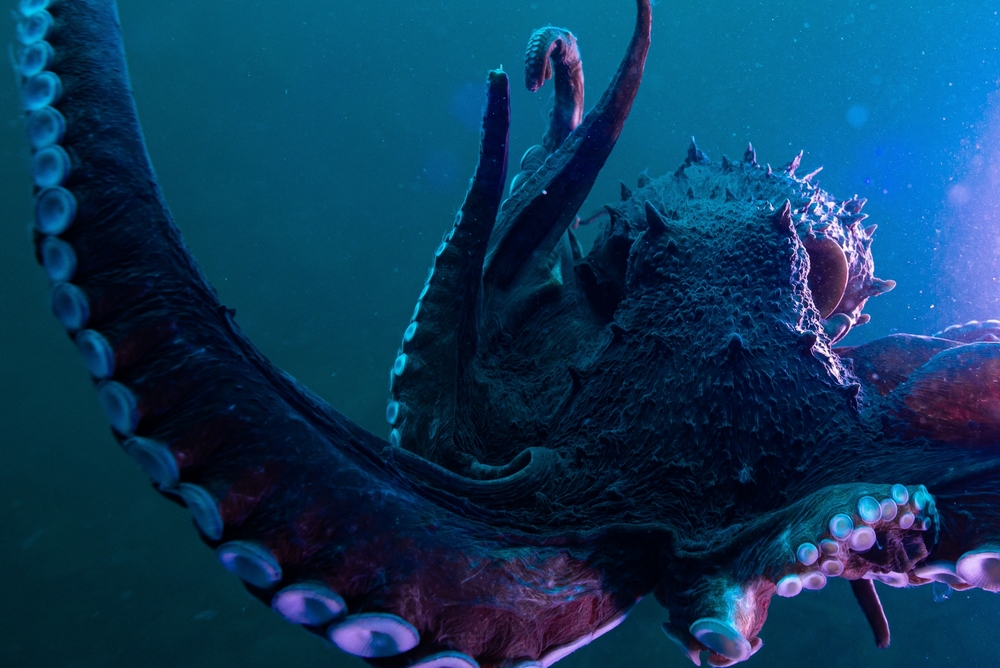
Octopuses are known to be creative home builders, often arranging their surroundings to suit their needs. They’ll gather rocks, shells, and other ocean debris to construct a den that provides both camouflage and protection. This behavior shows not only an understanding of their environment but also an ability to manipulate it to their advantage. It’s akin to humans building houses with specific materials for particular climates—octopuses just do it on a much smaller scale.
Their architectural endeavors highlight their problem-solving skills and adaptability. Creating a secure home requires foresight, planning, and the ability to execute complex tasks. While it may not be a skyscraper, their dens serve as a testament to their ingenuity and intelligence. Imagine snorkeling and stumbling upon an octopus’s carefully curated home—it’s like finding an underwater artist’s studio, crafted for both function and aesthetic.
9. They Have a Masterful Memory
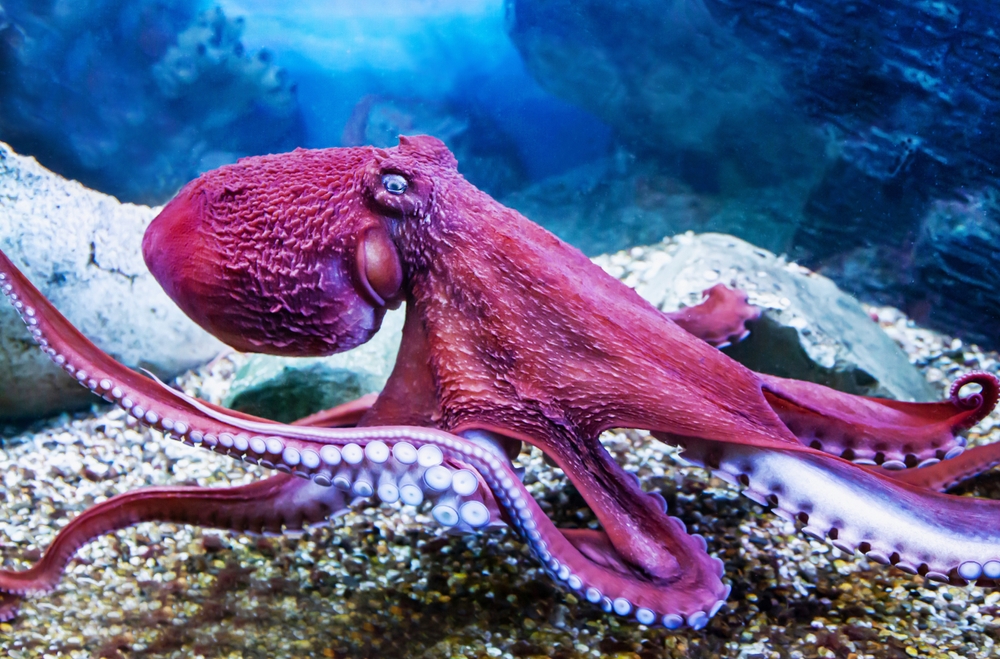
One of the most fascinating aspects of octopus intelligence is their memory prowess. They have the ability to remember past experiences and use that information to inform future actions. This kind of memory retention is rare in the animal kingdom and is a strong indicator of advanced cognitive abilities. Imagine navigating the ocean, recalling where food sources are and which predators to avoid—octopuses do this effortlessly.
Their memory isn’t just about basic survival; it also plays a role in their problem-solving and learning capabilities. When faced with new challenges, they can draw on past experiences to find solutions, showcasing a level of cognitive complexity that’s truly remarkable. This memory mastery allows them to adapt quickly to changing environments and circumstances. Next time you’re struggling to remember where you left your keys, just think of the octopus, recalling intricate details of its vast ocean home.
10. They Have Exceptional Vision
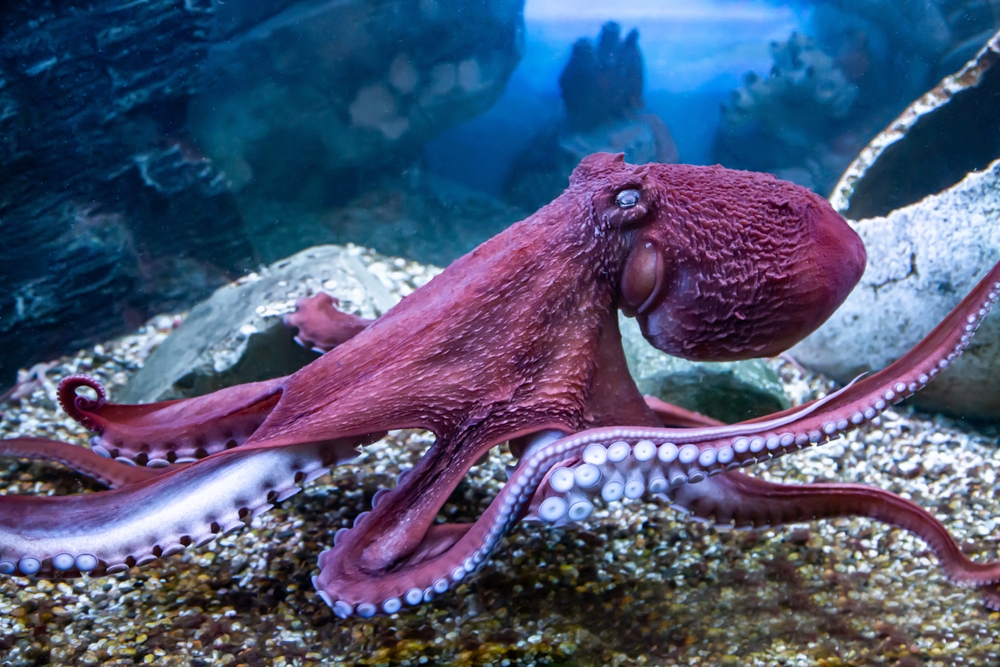
Octopuses have some of the most advanced vision systems in the animal kingdom, which plays a crucial role in their survival and intelligence. They possess the ability to see polarized light, giving them a unique perspective on their surroundings. This enhanced vision allows them to detect subtle differences in their environment, aiding in hunting and camouflage. It’s like having a built-in pair of high-tech sunglasses that can decipher complex visual information.
Their impressive eyesight is complemented by their ability to change their appearance, making them masters of deception. They can alter their skin’s texture and color in response to visual cues, allowing them to blend seamlessly into their environment. This dynamic interplay of vision and camouflage showcases a level of intelligence that is both strategic and reactive. It’s as if they have a built-in special effects department, ready to adapt to whatever the ocean throws their way.
11. They’re Highly Adaptive Learners
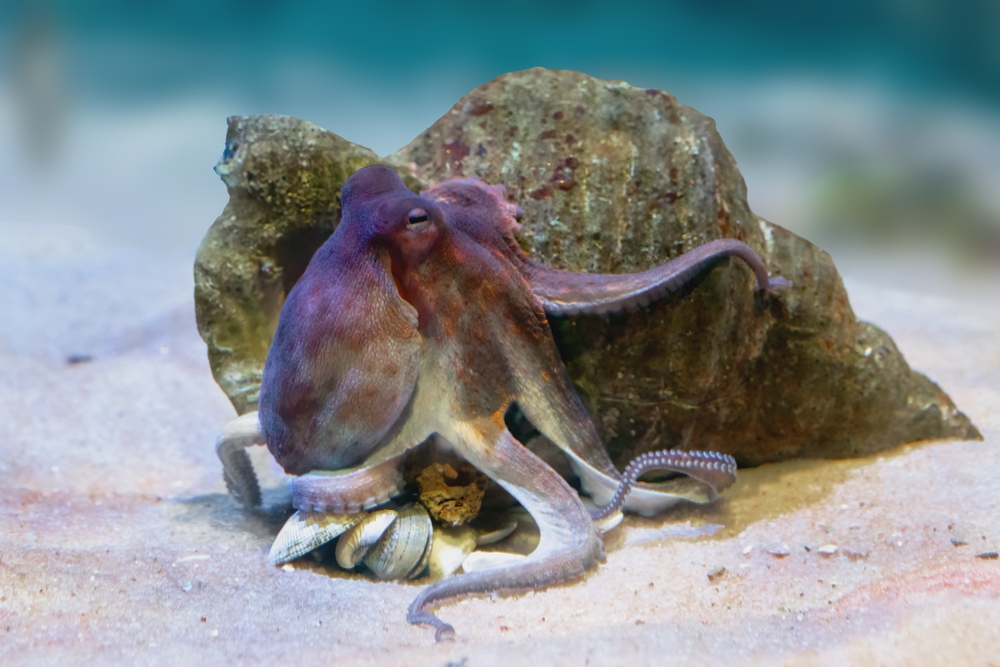
One of the most impressive qualities of octopuses is their ability to learn from experience and adapt their behavior accordingly. In experiments, they’ve been shown to learn new tasks and remember solutions, even after long periods. This capacity for learning demonstrates a complex cognitive process that involves memory, analysis, and application. It’s like witnessing a crash course in survival, where octopuses are both the students and the teachers.
Their adaptability is not limited to controlled environments; in the wild, they continuously learn and adjust to new challenges. Whether it’s figuring out how to open a tricky clam shell or avoiding a predator’s trap, octopuses excel at using their past experiences to inform their future actions. This ability to adapt and evolve in real-time speaks to a level of intelligence that is both dynamic and profound. So the next time you’re faced with a new challenge, take a page from the octopus handbook and embrace the power of adaptability.
12. They’re Seriously Self-Aware
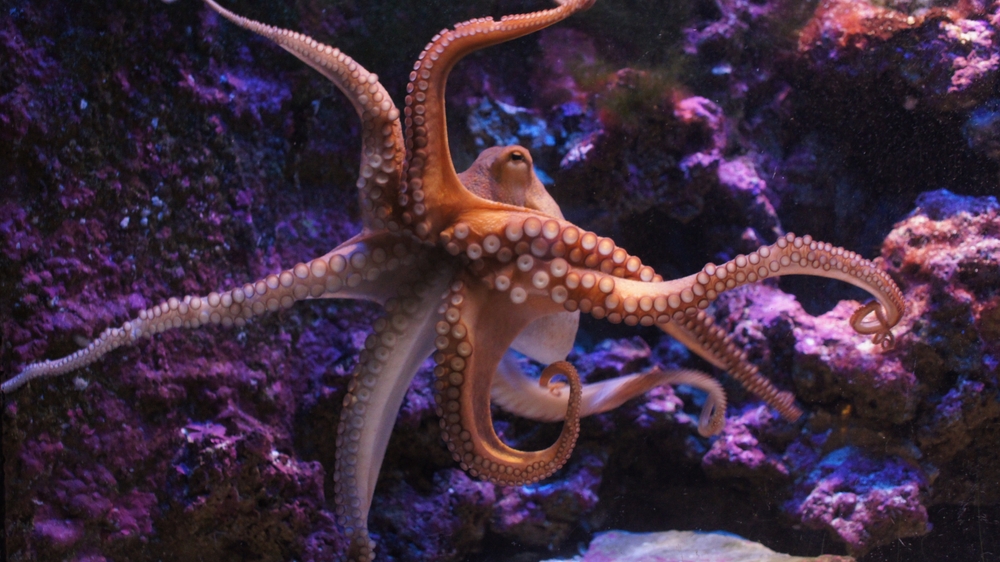
The idea that octopuses may possess a form of consciousness is a topic of much debate among scientists. Their ability to engage in complex behaviors, demonstrate problem-solving skills, and exhibit individual personalities suggests a level of self-awareness that challenges our understanding of animal intelligence. While we may never fully understand the inner workings of an octopus’s mind, their actions hint at a rich and nuanced mental life. It’s like watching a movie with a plot that’s deeper and more intricate than we can comprehend.
Their potential for consciousness raises fascinating questions about the nature of intelligence and the boundaries of human perception. If creatures like octopuses can exhibit signs of sentience, it challenges us to reevaluate our definitions of mind and thought. Their mysterious and enigmatic behaviors invite us to explore the depths of understanding, both of ourselves and the world around us. So next time you gaze into the eyes of an octopus, remember—there may be more going on behind those eyes than we realize.
13. They Have Eight Mini Brains
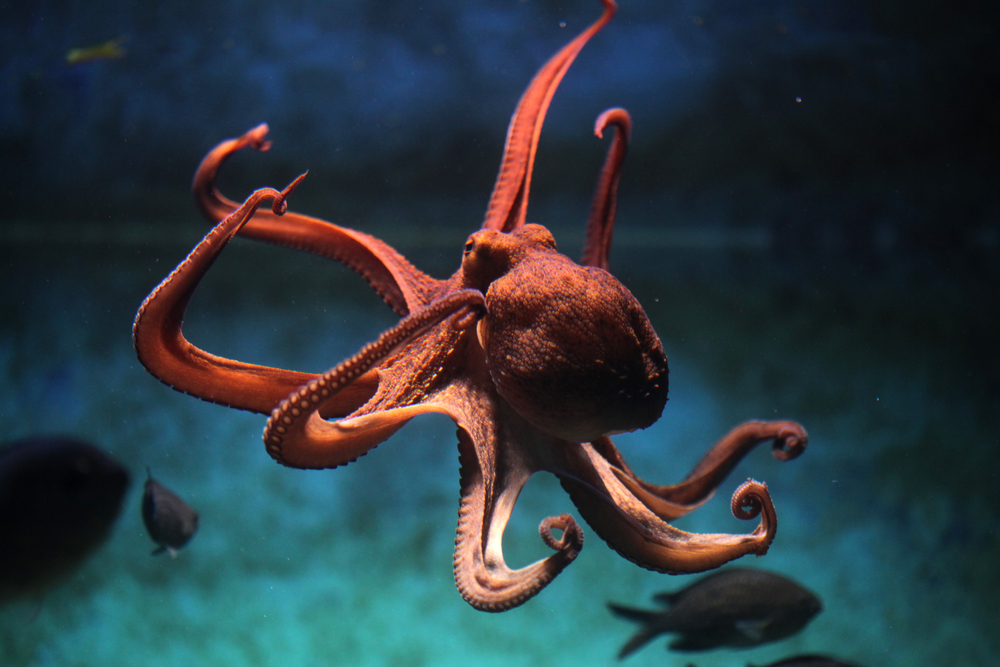
The brain of an octopus is a marvel of nature, with two-thirds of its neurons located in its arms. This decentralized neural system allows for an incredible degree of independence and coordination. Each arm can operate autonomously, performing tasks without direct input from the central brain. It’s like having eight mini-brains working in unison, all contributing to the octopus’s overall intelligence and functionality.
This unique brain structure gives octopuses a remarkable level of dexterity and control over their environment. They can manipulate and explore objects with precision, showcasing a level of intelligence that’s both physical and cognitive. This combination of brainpower and dexterity allows them to perform feats that few other animals can match. The next time you’re multitasking and struggling to juggle everything, think of the octopus, seamlessly managing eight tasks at once.
14. They’re Emotional Enigmas
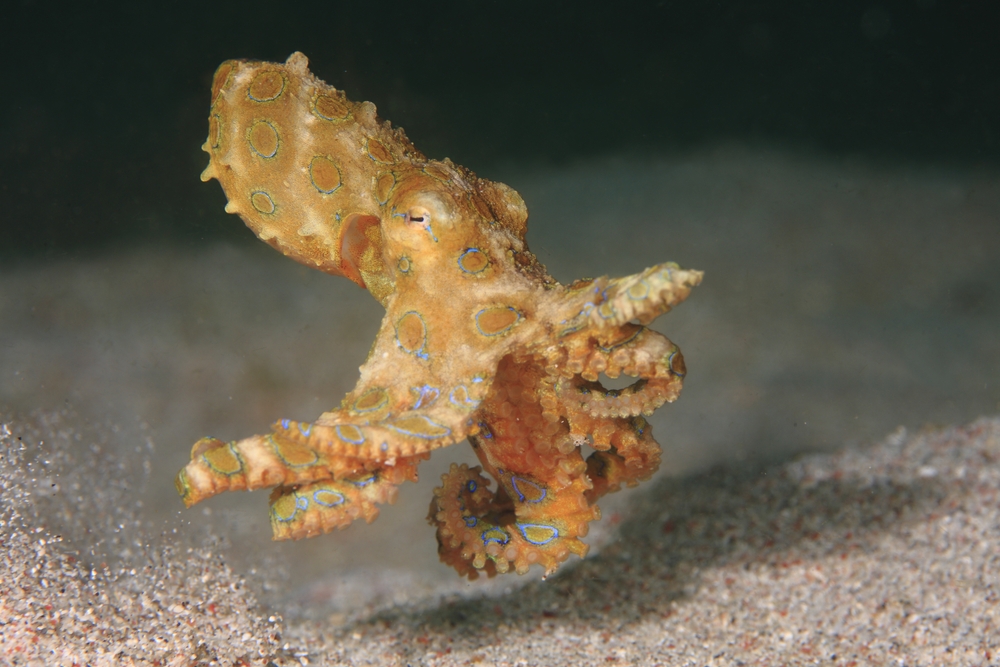
While it’s difficult to measure emotions in non-human animals, octopuses exhibit behaviors that suggest a complex emotional life. They can display signs of curiosity, playfulness, and even mood changes, hinting at a rich internal world. Their interactions with humans and other animals often show a degree of emotional intelligence that’s both surprising and endearing. It’s like meeting a new friend who you instantly click with, only this friend happens to live underwater and has eight arms.
Their capacity for emotional expression raises intriguing questions about the nature of feelings and consciousness in animals. If octopuses can experience emotions, it challenges our understanding of what it means to be sentient and empathetic. It’s a reminder that intelligence isn’t just about problem-solving—it’s also about the ability to connect, feel, and respond to the world with a sense of wonder. So next time you’re feeling overwhelmed by emotions, remember the octopus, gracefully navigating its own intricate emotional landscape.
15. Their Wonders And Wisdom Is Ever-Evolving
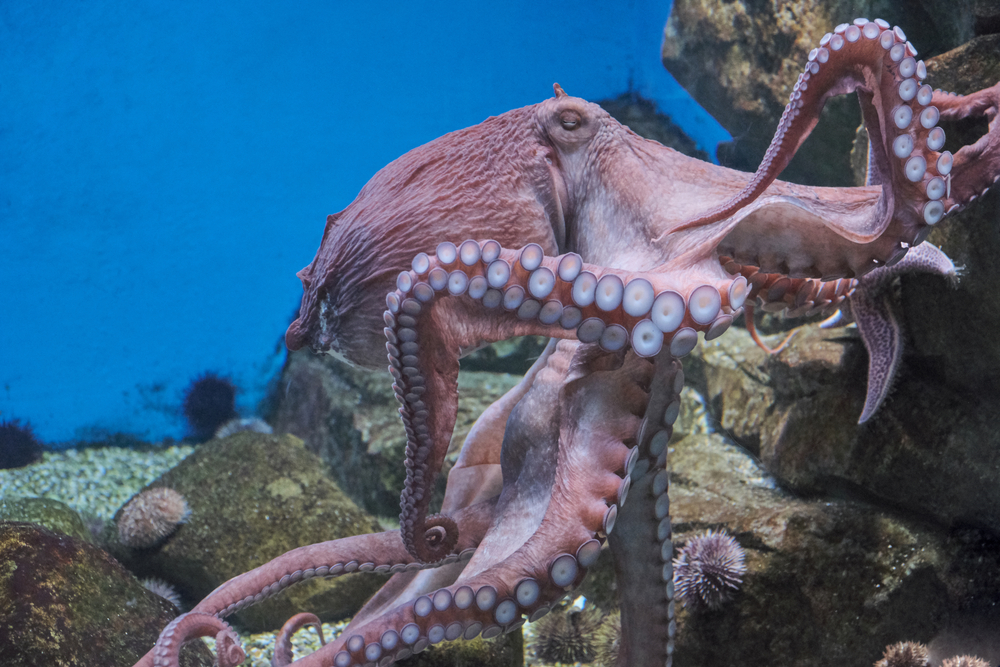
Octopuses are living proof that evolution is a continuous and awe-inspiring process. Over millions of years, they’ve developed an array of skills and adaptations that make them some of the most intelligent and versatile creatures on Earth. From their ability to change color and texture to their impressive problem-solving skills, octopuses exemplify the wonders of natural selection. It’s like watching the unfolding of a masterpiece, where each brushstroke is a testament to the power of evolution.
Their ongoing evolution offers valuable insights into the nature of intelligence and adaptability. As they continue to evolve, they challenge us to reevaluate our understanding of what it means to be smart and resourceful. They serve as a powerful reminder that intelligence comes in many forms, each unique and remarkable in its own right. So as we marvel at the octopus, let’s also celebrate the diversity of life and the endless possibilities that evolution presents.
